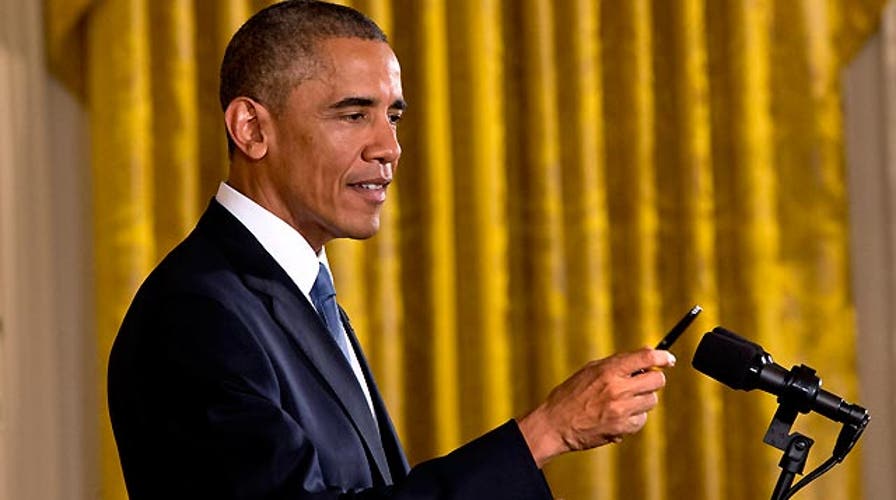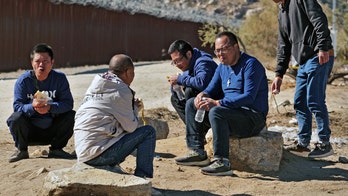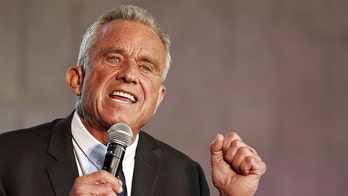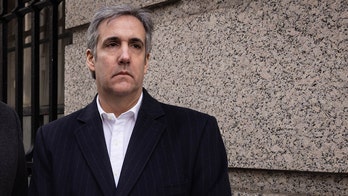Building the Keystone XL oil pipeline, overhauling the tax code and easing "excessive" regulations blamed for slow economic growth are at the top of the agenda for the new Republican majority in Congress.
But absent from a Wall Street Journal opinion piece penned by House Speaker John Boehner and presumptive Senate Majority Leader Mitch McConnell is any mention of immigration, which President Obama has vowed to pursue via the executive pen. The president also vowed to veto any attempts to repeal ObamaCare -- which is front and center on the Boehner/McConnell agenda.
All of these and more are expected to be put on the table Friday, when Obama and Republican congressional leaders meet face-to-face for a White House summit.
The meeting on Friday could offer the first real clues as to whether the next two years will bring gridlock and partisan warfare -- or some breakthroughs.
Boehner and McConnell, in their op-ed, said the GOP agenda will center around jobs and the economy, and changing policies that hinder growth. They pointed to several initiatives passed by the House, "only to gather dust in a Democratic-controlled Senate."
Among the priority measures, the GOP leaders called for green-lighting the construction of the Canada-to-Texas Keystone pipeline, saying it would lead to "lower energy costs for families and more jobs for American workers."
The pipeline would appear to be an area where Republicans could build a Democratic coalition in the Senate to pressure the president. White House Press Secretary Josh Earnest, though, offered no clues to the president's stance, saying Wednesday the administration will continue to wait for another court ruling and State Department evaluation.
Republicans on Tuesday picked up at least seven seats in the Senate, giving them the majority, and built their majority in the House to historic levels.
With that leverage, Boehner and McConnell said they also plan to pursue legislation encouraging business to hire more veterans, expanding America's "energy boom," and supporting charter schools.
They called for tackling the "insanely complex tax code," an effort that stalled in advance of the midterm elections, and for "renewing our commitment to repeal ObamaCare." To that point, Obama said in a press conference Wednesday he would not sign any repeal of the Affordable Care Act.
Both Obama and McConnell suggested Wednesday afternoon that voters upended the balance of power in Washington in part because they're tired of Washington's "dysfunction."
McConnell and fellow Republicans claimed the vote also was a major rejection of Obama's policies -- but both sides claimed they want to try and work together in the remaining years of Obama's term. "What the voters really want is they want Democrats and Republicans in Washington, D.C., to sit down and start working toward some common ground," Earnest told Fox News on Thursday.
Voters have heard this pledge before, only to see the conciliatory spirit doused by the political pressure of the next elections.
Obama, testing the new political waters, called a major summit for Friday at the White House with top congressional leaders from both parties.
This will include McConnell and Boehner, as well as Senate Democratic Leader Harry Reid and his deputies -- and House Democratic Leader Nancy Pelosi, and hers.
On Wednesday, Obama made clear he does plan to pursue a highly controversial policy during the lame-duck session -- and take executive action on immigration in the absence of any comprehensive bill.
"Before the end of the year, we're going to take whatever lawful actions that I can take" to improve the system, Obama said. He said he still wants Congress to pass legislation, but wants to figure out "what we can do lawfully, through executive actions" in the meantime. He promised that if Congress passes a bill, it would make any executive actions "go away."
Republicans have urged Obama to hold off on this step, and the move could get Obama and the new GOP-control Congress off on the wrong foot.
Comments from GOP leaders and Obama on Wednesday suggested the next two years could bring a mix of bipartisan efforts and political confrontation. McConnell, for instance, talked about chipping away at unpopular provisions of the Affordable Care Act, including a medical device tax which the industry has blasted as crippling. A Republican-controlled Senate also would be in a position to hold up key judicial and political appointments.
But there may be areas of agreement, and Obama said he wants to find the "overlap" between his administration's priorities and those of the incoming Republican-controlled Congress.
The president outlined a few agenda points to start with, including a $6 billion request for emergency funds to battle Ebola in West Africa and in the U.S., and a congressional authorization to use military force against the Islamic State.
Obama suggested there is no personal animus between him and McConnell, calling him a "straightforward" negotiator who never made a promise he couldn't deliver.
"Actually I would enjoy having some Kentucky bourbon with Mitch McConnell," Obama said.





